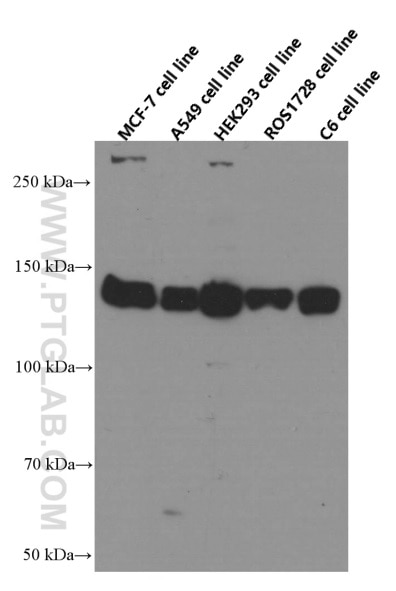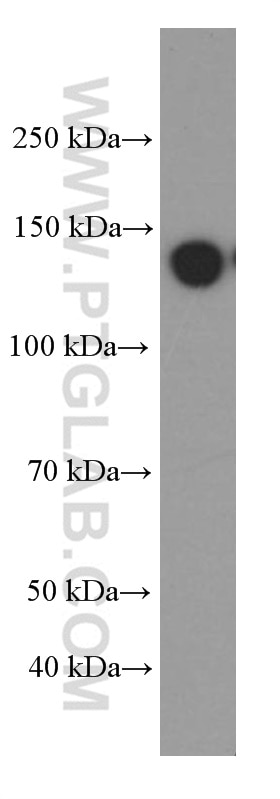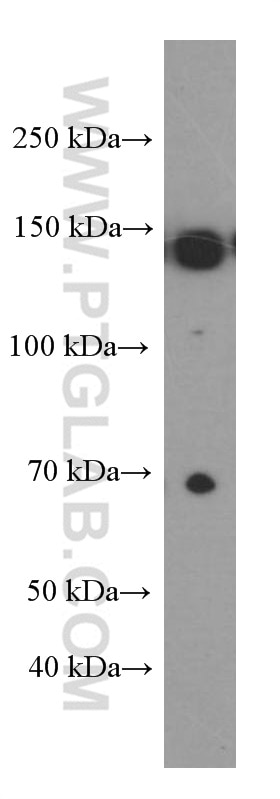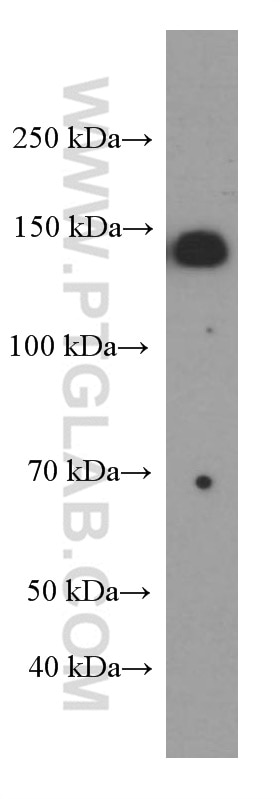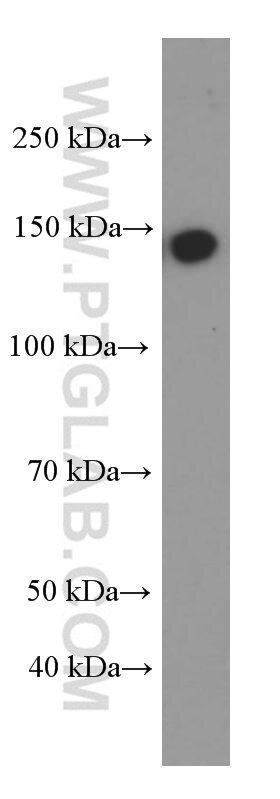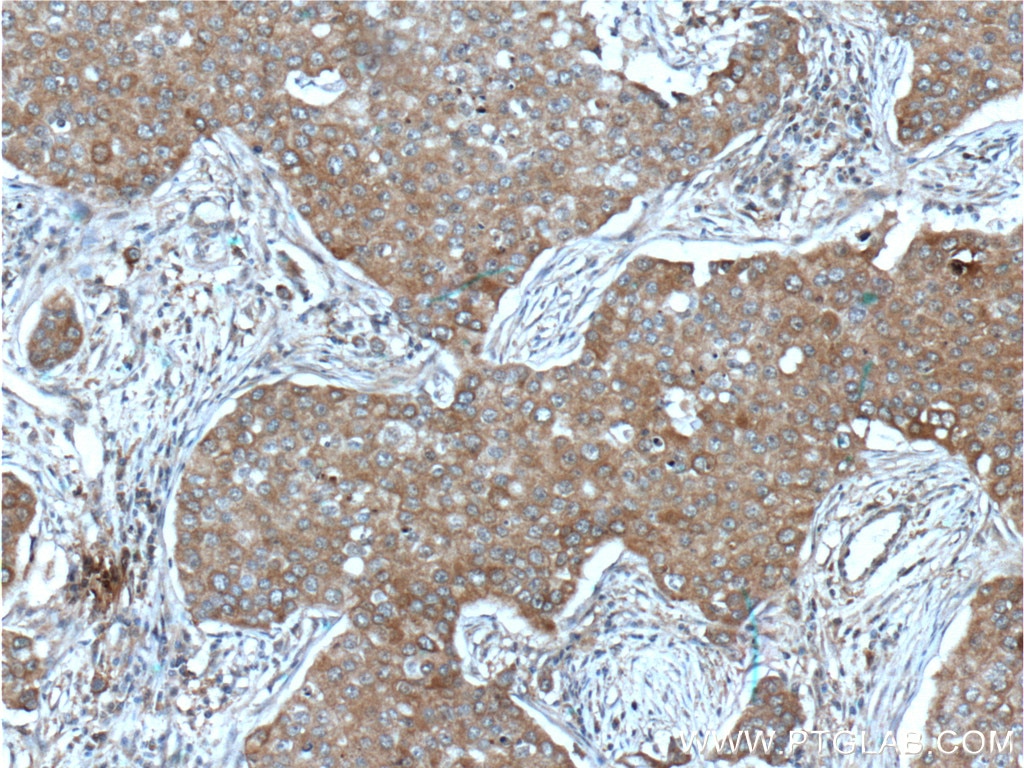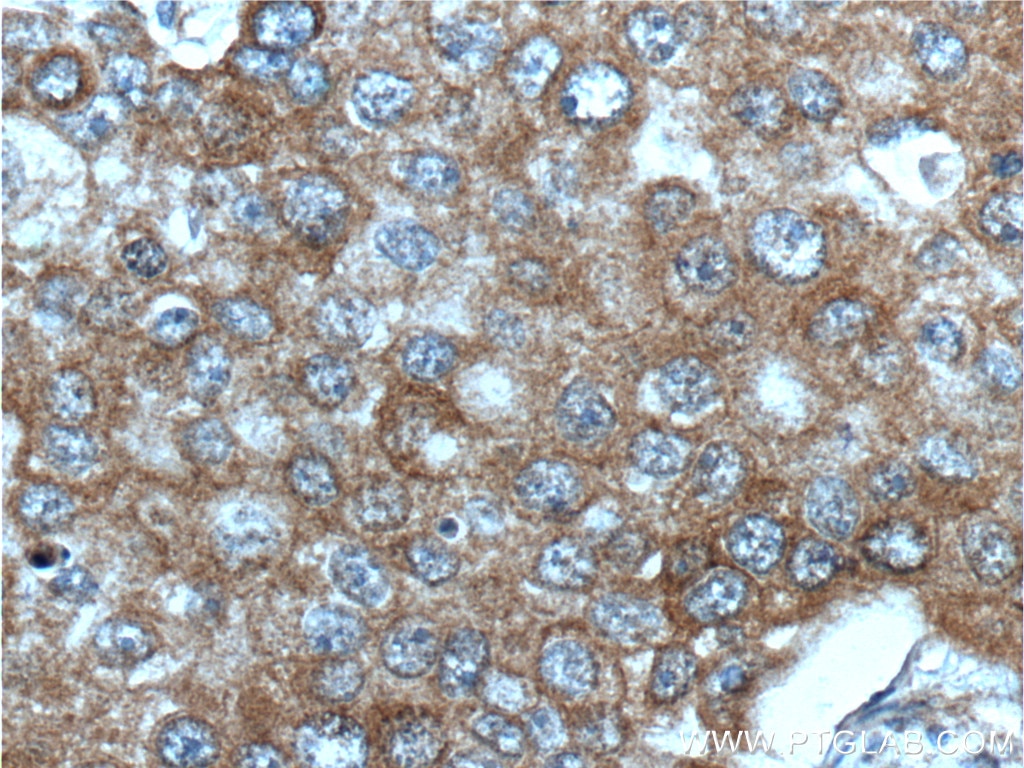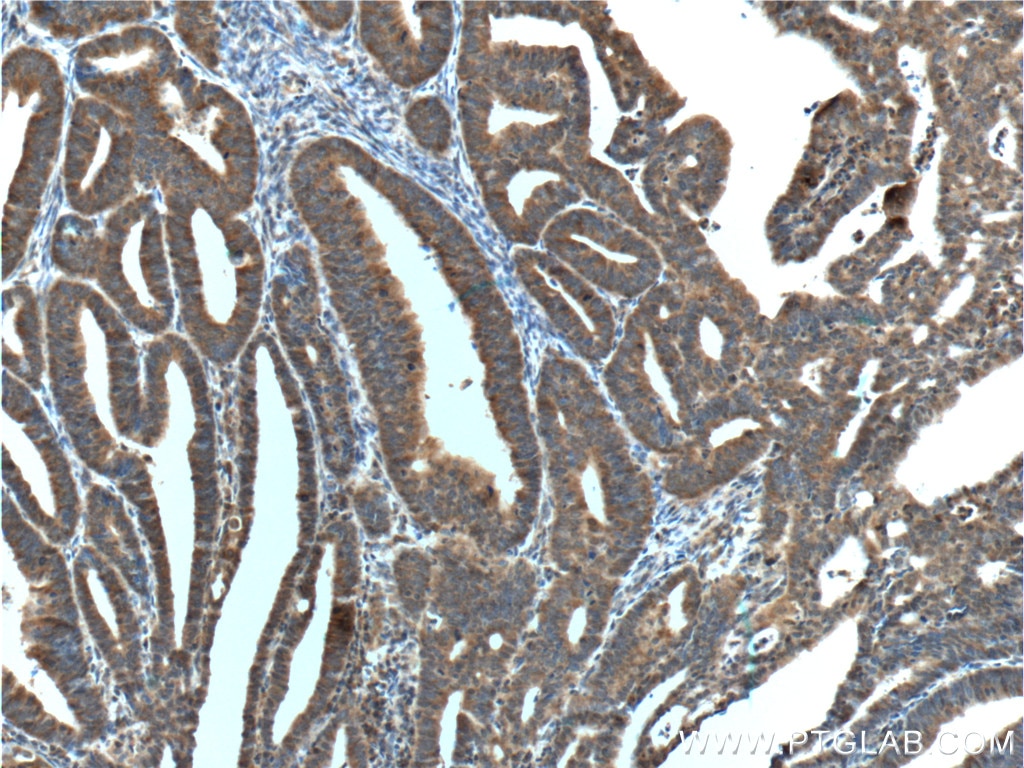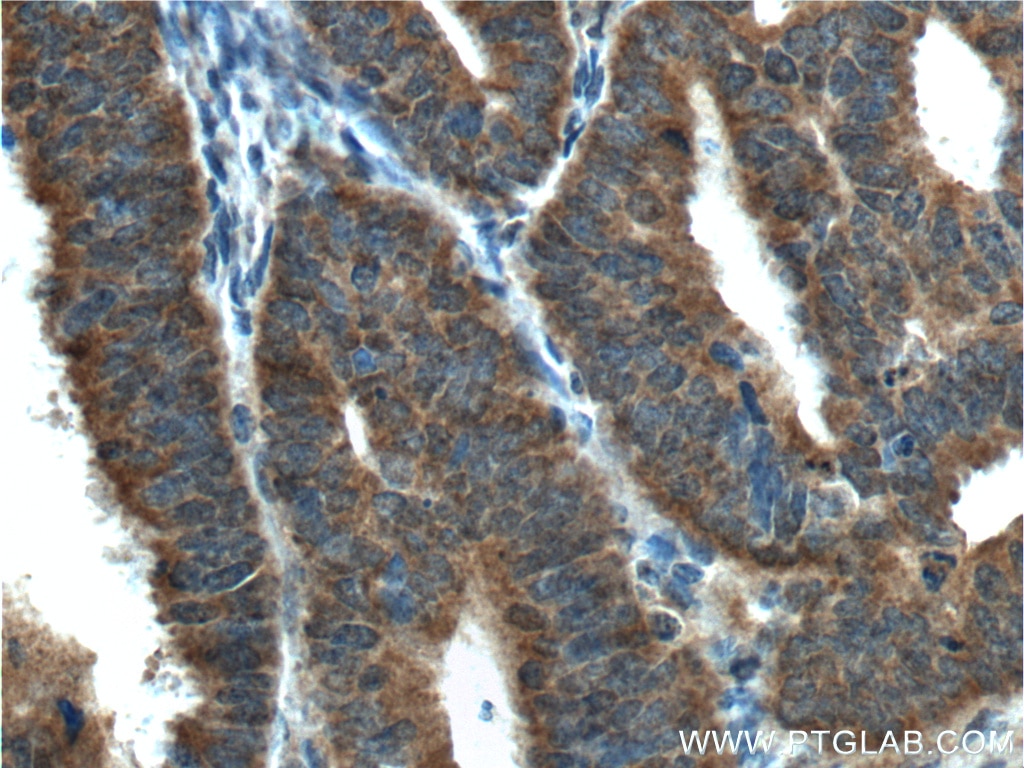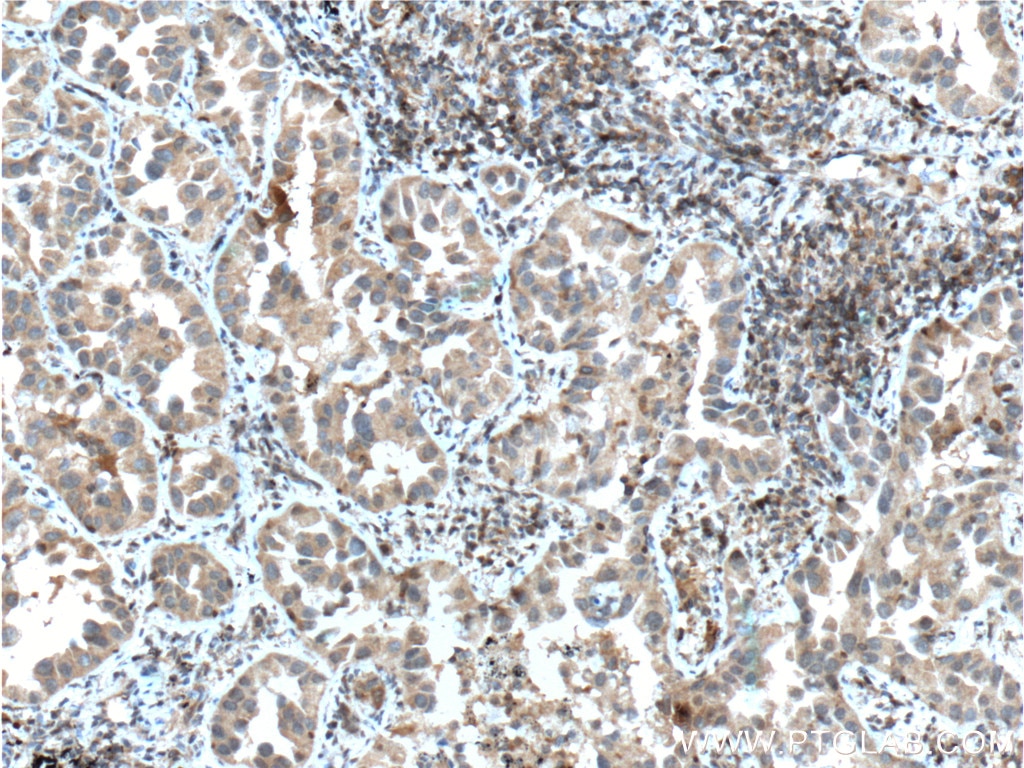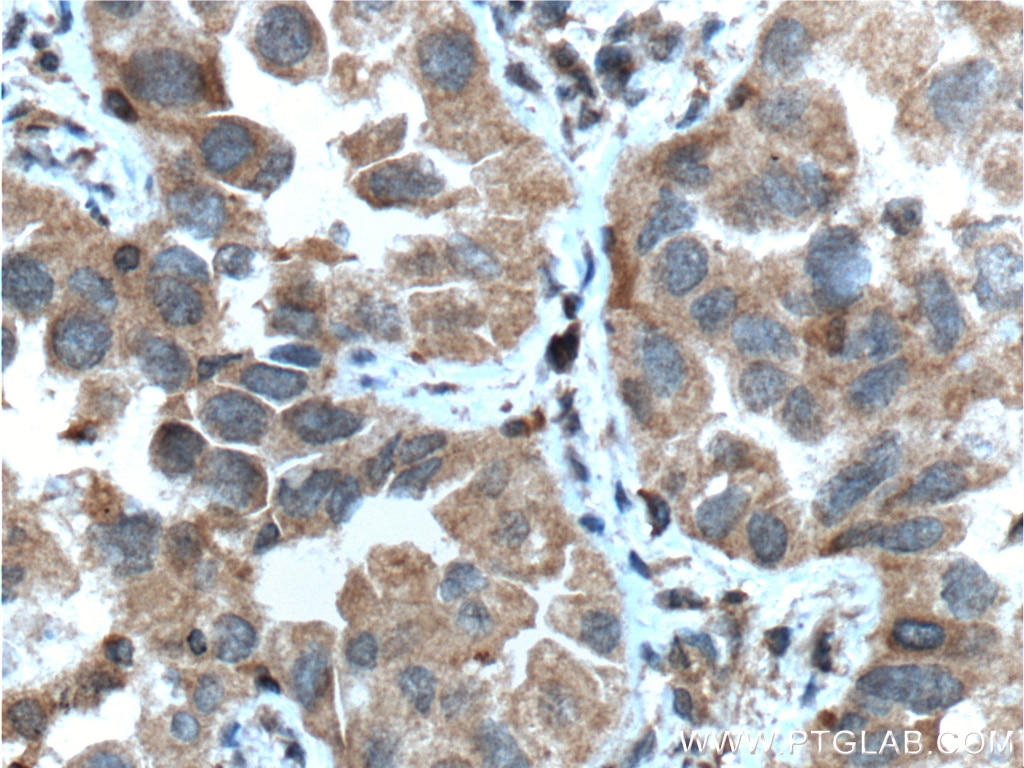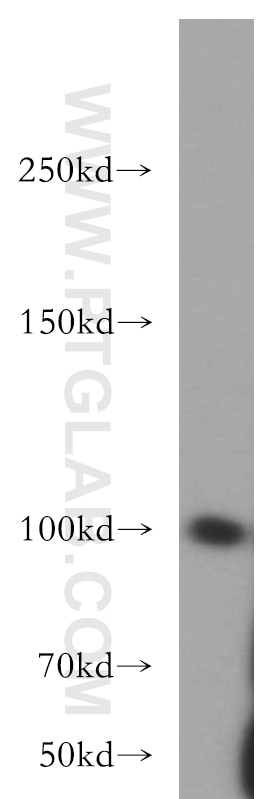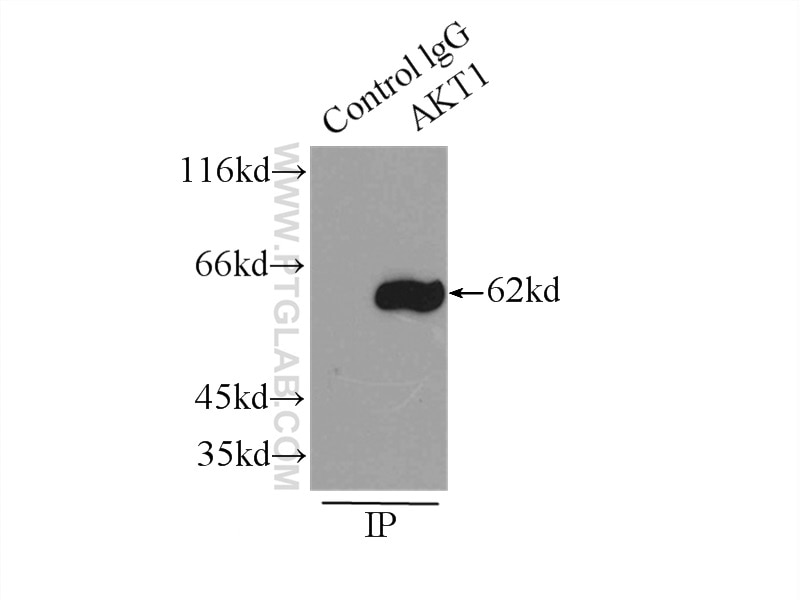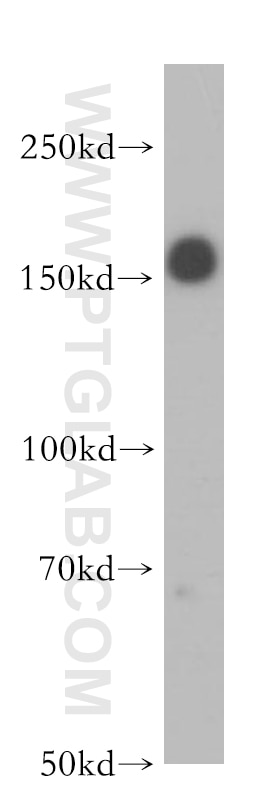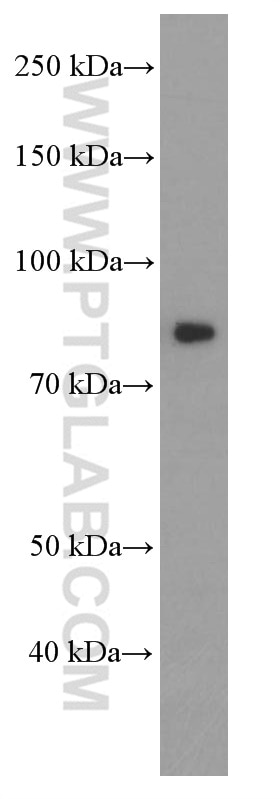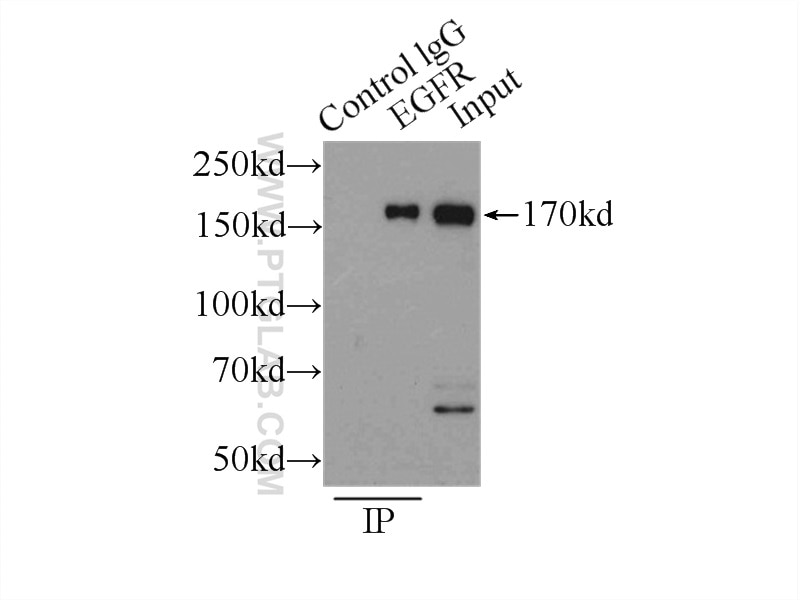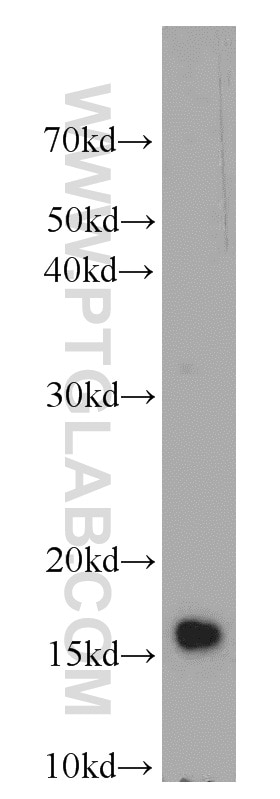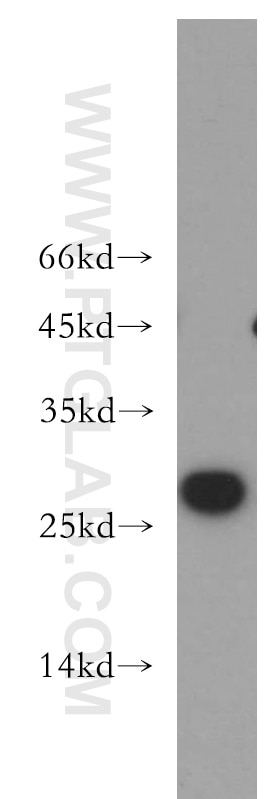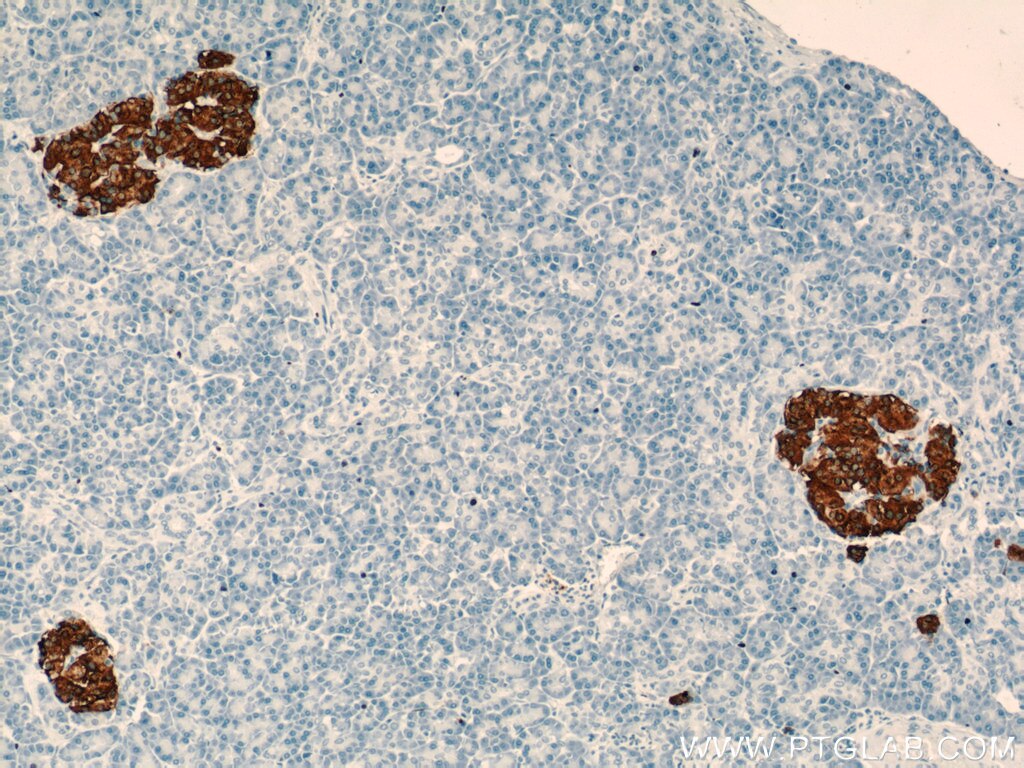Anticorps Monoclonal anti-IGF1R
IGF1R Monoclonal Antibody for IHC, WB, ELISA
Hôte / Isotype
Mouse / IgG1
Réactivité testée
Humain, rat et plus (1)
Applications
WB, IHC, ELISA
Conjugaison
Non conjugué
CloneNo.
3C6A11
N° de cat : 66283-1-Ig
Synonymes
Galerie de données de validation
Applications testées
| Résultats positifs en WB | cellules MCF-7, cellules A549, cellules C6, cellules HEK-293, cellules HeLa, cellules HepG2, cellules HUVEC, cellules ROS1728 |
| Résultats positifs en IHC | tissu de cancer du sein humain, tissu de cancer de l'endomètre humain, tissu de cancer du poumon humain il est suggéré de démasquer l'antigène avec un tampon de TE buffer pH 9.0; (*) À défaut, 'le démasquage de l'antigène peut être 'effectué avec un tampon citrate pH 6,0. |
Dilution recommandée
| Application | Dilution |
|---|---|
| Western Blot (WB) | WB : 1:1000-1:8000 |
| Immunohistochimie (IHC) | IHC : 1:50-1:500 |
| It is recommended that this reagent should be titrated in each testing system to obtain optimal results. | |
| Sample-dependent, check data in validation data gallery | |
Applications publiées
| WB | See 5 publications below |
| IHC | See 1 publications below |
Informations sur le produit
66283-1-Ig cible IGF1R dans les applications de WB, IHC, ELISA et montre une réactivité avec des échantillons Humain, rat
| Réactivité | Humain, rat |
| Réactivité citée | rat, Humain, souris |
| Hôte / Isotype | Mouse / IgG1 |
| Clonalité | Monoclonal |
| Type | Anticorps |
| Immunogène | Peptide |
| Nom complet | IGF I receptor |
| Masse moléculaire calculée | 155 kDa |
| Poids moléculaire observé | 130-140 kDa |
| Numéro d’acquisition GenBank | NM_000875 |
| Symbole du gène | IGF1R |
| Identification du gène (NCBI) | 3480 |
| Conjugaison | Non conjugué |
| Forme | Liquide |
| Méthode de purification | Purification par protéine A |
| Tampon de stockage | PBS avec azoture de sodium à 0,02 % et glycérol à 50 % pH 7,3 |
| Conditions de stockage | Stocker à -20°C. Stable pendant un an après l'expédition. L'aliquotage n'est pas nécessaire pour le stockage à -20oC Les 20ul contiennent 0,1% de BSA. |
Informations générales
IGF1R, also named CD221, belongs to the protein kinase superfamily, Tyr protein kinase family, and INS receptor subfamily. IGF1R binds INS-like growth factor 1 (IGF1) with a high affinity and IGF2 with a lower affinity. It has a tyrosine-protein kinase activity, which is necessary for the activation of the IGF1-stimulated downstream signaling cascade. When present in a hybrid receptor with INSR, IGF1R binds IGF1. The hybrid receptors composed of IGF1R and INSR isoform Long are activated with a high affinity by IGF1, with low affinity by IGF2, and not significantly activated by INS, and that hybrid receptor composed of IGF1R and INSR isoform Short are activated by IGF1, IGF2, and INS. In contrast, the hybrid receptors composed of IGF1R and INSR isoform Long and hybrid receptors composed of IGF1R and INSR isoform Short have similar binding characteristics, both bind IGF1 and have a low affinity for INS. Defects in IGF1R may be a cause in some cases of resistance to INS-like growth factor 1 (IGF1 resistance).
Protocole
| Product Specific Protocols | |
|---|---|
| WB protocol for IGF1R antibody 66283-1-Ig | Download protocol |
| IHC protocol for IGF1R antibody 66283-1-Ig | Download protocol |
| Standard Protocols | |
|---|---|
| Click here to view our Standard Protocols |
Publications
| Species | Application | Title |
|---|---|---|
Thyroid A MULTICENTER, SINGLE-BLIND, CASE-CONTROL, IMMUNOHISTOCHEMICAL STUDY OF ORBITAL TISSUE IN THYROID EYE DISEASE | ||
Cell Signal Cell surface GRP78 facilitates hepatoma cells proliferation and migration by activating IGF-IR. | ||
Behav Brain Res Possible mechanisms of prenatal cold stress induced-anxiety-like behavior depression in offspring rats. | ||
Biosci Biotechnol Biochem Black rice bran intake reduces phosphorylated tau levels and enhances insulin signaling in the brain of aged normal mice | ||
Eur J Obstet Gynecol Reprod Biol Comprehensive assessment the expression of core elements related to IGFIR/PI3K pathway in granulosa cells of women with polycystic ovary syndrome. | ||
Drug Deliv Codelivery of DOX and siRNA by folate-biotin-quaternized starch nanoparticles for promoting synergistic suppression of human lung cancer cells. |
